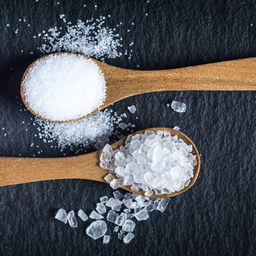|
2/9/2021 0 Comments Sodium & Cardiovascular Health
who we see an increase in blood pressure with a higher sodium intake. Interestingly, when these so-called "hyper-responders" follow a low-sodium diet, it actually doesn’t lower their blood pressure significantly. Therefore this begs the question, is sodium really to blame? This portion of the population would likely see much greater benefit from implementing other lifestyle changes, such as a low carbohydrate diet, to address their high blood pressure, along with many other health issues).
If you’d like to learn more about this, check out Robb Wolf’s interview on the Wellness Mama podcast here: https://wellnessmama.com/podcast/wired-to-eat/ What traditional recommendations also fail to explain is that not all sodium is created equal. I would agree that we need to take action to avoid or limit sodium that comes from processed foods and iodized table salt. However, the natural sodium found in whole foods and from the salting our foods with unrefined "dirty" sea salt or Celtic salt provides us with vital nutrients (beyond just sodium) that provide an array of benefits. Sodium plays a variety of vital roles in our body such as controlling our fluid balance and proper muscle and nerve function. Sodium also helps our kidneys properly process the foods and drinks we consume. Too little sodium and we wind up with a host of problems such muscle cramps, dizziness, confusion, and weakness to name a few. If you’re following a low-carb or ketogenic diet, or are an avid exerciser, your sodium requirements will actually be higher than average. Now, since I don’t know your individual health history, I can’t recommend limiting or increasing your sodium intake (unless it’s coming from processed foods, then I wholeheartedly recommend avoiding them), but I would encourage you to dig into this topic if you feel like dietary changes regarding sodium would benefit you!
0 Comments
Leave a Reply. |
Archives
December 2023
This website uses marketing and tracking technologies. Opting out of this will opt you out of all cookies, except for those needed to run the website. Note that some products may not work as well without tracking cookies. Opt Out of Cookies |
|
© 2023 Rachel Murray Holistic Nutrition
|

